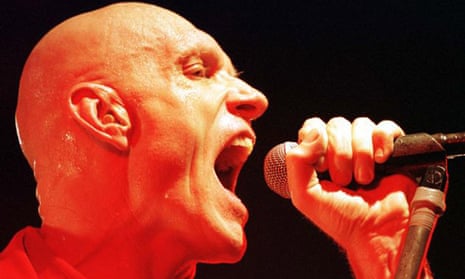Beds are Burning is arguably the most resonantly subversive artistic gesture ever made by Australians. Released by the country’s biggest rock group just months before Australia marked, on 26 January 1988, the 200th anniversary of the first fleet’s arrival in Sydney, it ensured that the dominant soundtrack of our bicentennial year would be a song which reminded that the country we were celebrating was founded on pillage and genocide.
Beds are Burning is a brisk dispatch from geographical and moral places that Australians generally prefer not to visit – the immense emptiness of our outback, and the grim post-1788 history of Australia’s Indigenous people.
Diesel and Dust, the album from which Beds are Burning was drawn, was the result of Midnight Oil’s 1986 Blackfella-Whitefella tour of Indigenous communities with the mostly Aboriginal Warumpi Band and Gondwanaland – the latter one of the few groups to have deployed the didgeridoo as a lead instrument.
Though Midnight Oil had never been politically reticent, they’d hitherto been more concerned with big-picture angst – environmental anguish, and the nuclear paranoia which was the style at the time. They returned from the desert more determined to act locally than think globally. Diesel and Dust was a powerful, pleading rattle of the national conscience, and Beds are Burning essentially the album’s executive summary, suggesting to non-Indigenous Australia that the country “Belongs to them/Let’s give it back.” (Even allowing for the exigencies of clarity in protest song, this reference to fellow citizens as “them” is the only dud note it strikes).
Ironically, Diesel and Dust, by far Midnight Oil’s most specifically Australian album, became their biggest global hit; Beds are Burning did notably well in countries which had also acquired their territory at gunpoint, charting high in the United States, Canada and South Africa.
Beds are Burning is a simple but deceptively clever piece of writing. In the couplet “The time has come/To say fair’s fair,” it pulls two powerful local triggers, evoking both the “It’s time” slogan that ushered in the 1972 Labor government of Gough Whitlam, which made some overdue progress on Indigenous issues, and the treasured Australian notion of the “fair go”. Its evocation of the outback, while as sparse and dry as the land itself, is also deft, juxtaposing the Anglo name of Kintore East with the Indigenous one of Yuendumu – and knowing that both will sound, to most of Midnight Oil’s fellow coast-hugging Australians, at once cosily familiar and utterly alien.
Crucially, the music underpinning the bleak sentiment of Beds are Burning is anything but mournful. The song announces itself with a three-note trumpet fanfare (a thesis remains to be written about the fondness for brass of Australian post-punk groups – see also the Saints, Hunters and Collectors). It rests on a chugging bassline which builds to an instantly irresistible and unforgettable chorus which, as all great protest songs do, invites you either to agree with its premise, or satisfactorily explain to yourself why you don’t. Beds are Burning was an anthem written to drown out the anthem we were scheduled to be singing all the following year.
For all that Diesel and Dust became the unofficial musical accompaniment to the bicentennial, it would take another 13 years for Beds are Burning to complete its triumph. At the closing ceremony of Sydney’s Olympic Games in 2000, Midnight Oil played the song dressed in black outfits emblazoned in white with the word “sorry”. I can’t have been alone in feeling weird that a performance of a song about Australia’s greatest shame inspired, in that context, a flicker of pride.





Comments (…)
Sign in or create your Guardian account to join the discussion